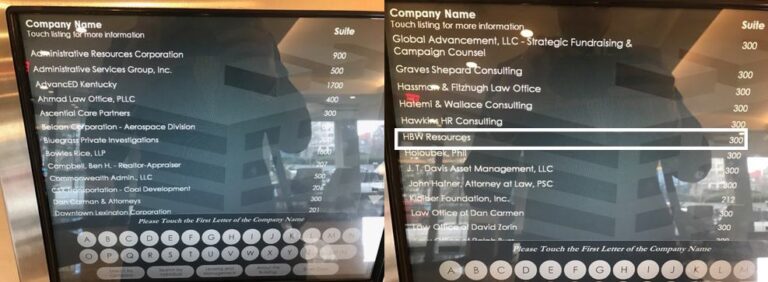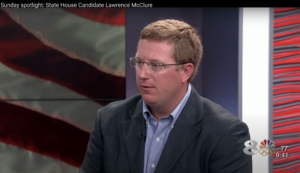
Consumer Energy Alliance
Consumer Energy Alliance (CEA) likes to call itself “the voice of the energy consumer,” but it really is an advocacy front group for some of the country’s largest fossil fuel corporations and trade associations. Its members page does not include nationally recognized organizations that advocate on behalf of consumers and low-income communities, senior citizens, and minorities such as AARP, local citizen utility boards, NAACP, and the National Consumer Law Center.
CEA pitches its “consumer advocacy voice” to fossil fuel companies and their trade associations to help industry campaigns “out flank” the opponents it has targeted, including Greenpeace and the NAACP.
Consumer Energy Alliance is operated out of the offices of the Houston-based public relations and lobbying firm HBW Resources. HBW is headed by David Holt and Andrew Browning. Michael Whatley was a previous partner as well at HBW. Whatley is now the chairman of...
Consumer Energy Alliance (CEA) likes to call itself “the voice of the energy consumer,” but it really is an advocacy front group for some of the country’s largest fossil fuel corporations and trade associations. Its members page does not include nationally recognized organizations that advocate on behalf of consumers and low-income communities, senior citizens, and minorities such as AARP, local citizen utility boards, NAACP, and the National Consumer Law Center.
CEA pitches its “consumer advocacy voice” to fossil fuel companies and their trade associations to help industry campaigns “out flank” the opponents it has targeted, including Greenpeace and the NAACP.
Consumer Energy Alliance is operated out of the offices of the Houston-based public relations and lobbying firm HBW Resources. HBW is headed by David Holt and Andrew Browning. Michael Whatley was a previous partner as well at HBW. Whatley is now the chairman of the Republican National Committee after serving as the chair of the North Carolina Republican Party.
According to Consumer Energy Alliance’s IRS 990s, the front group has generated at least $21.1 million in revenue since 2010. CEA has then allocated $9.1 million, or 43%, of revenue to HBW Resources. The 990s also reveal that CEA has no staff; nearly all of the listed representatives on CEA’s website are HBW employees. A 2017 visit by a representative of the Energy and Policy Institute to CEA’s office in Lexington, Kentucky revealed that the office instead belonged to HBW Resources.

CEA’s Board of Directors include representatives from Nucor Corporation, the largest steel producer in the country; Caterpillar, a manufacturing company for construction and mining equipment, diesel and natural gas engines, and industrial gas turbines. Previously board members have been from the Plaza Group, an international petrochemical marketing company, and trade associations for the America’s airline companies and convenience stores/gas stations.
Utility Funding
In 2017, a CEA lobbyist was asked by an Indiana state legislator about the group’s funding structure during testimony on anti-solar legislation. CEA lobbyist James Voyles said that utility companies are indeed members of CEA. Voyles also explained that the utility company sector is prohibited from providing more than 35% of CEA’s revenue in a given year as their corporate charter states that at least 65% of the funding has to be from “energy consumers, companies like Nucor, companies like Caterpillar…”
Some of CEA’s utility industry members have been:
-
- American Gas Association
-
- Ameren Missouri
-
- Arizona Public Service
-
- CenterPoint Energy
-
- Dominion Energy
-
- DTE Electric
-
- Edison Electric Institute
-
- Entergy
-
- Florida Power & Light (NextEra)
-
- Jacksonville Energy Authority
-
- Nuclear Energy Institute
-
- Louisville Gas and Electric Company and Kentucky Utilities Company
-
- South Carolina Electric & Gas/SCANA (now owned by Dominion Energy)
-
- Xcel Energy
CEA worked to support Trump and increase fossil fuel production
In a presentation to the American Public Gas Association (APGA), CEA President David Holt told the members that they need to support Donald Trump and his energy goals. Nucor Corporation, which has a representative on the CEA board, is one of the largest contributors to Donald Trump’s 2020 campaign.
Holt then told APGA how his organization “knows the opposition” and it plays “offense” to help with members’ pipelines, fracking, or offshore drilling priorities.
In a similar presentation, CEA Executive Vice President Michael Whatley told attendees of the Ohio Energy Management Conference that his group exists to partner with industry to help make sure energy infrastructure gets built.
Additionally, HBW Resources’ lobbying portfolio increased under the Trump Administration. Its clients include Consumer Energy Alliance, BP, and the National Ocean Policy Coalition – whose members are CEA, oil companies, and more energy trade associations.
In 2019, CEA announced its “Moving Michigan” campaign to build support for Enbridge’s Line 5 pipeline. CEA spent at least $19,000 on Line 5 advocacy advertisements between August and September 2019 in Michigan, according to Federal Communications Commission filings.
CEA also claimed to have worked with coalitions in Indiana, Kentucky, and Mississippi to enact legislation that prohibit cities from banning fossil gas in all new building construction as part of the effort to reduce greenhouse gas emissions.
CEA claims to be “pro-solar” but backs utility positions against rooftop solar policies
Consumer Energy Alliance has attacked policies supportive of solar energy, while deliberately misleading the public with claims that it is “pro-solar.” In September of 2016, CEA released a report criticizing solar tax credits and solar net metering, which compensates solar customers for the excess solar energy they sell back to their utilities. The report admittedly ignores the robust studies that quantify the values of solar power, which are substantial. The CEA report also confuses rebates offered by utilities with government policies and criticizes third-party solar ownership models.
While CEA provides grist for attacks on solar policies, it cynically claims to be “pro-solar,” including a petition on its web site with misleading language for the public to sign, including: “As American energy consumers, we call on policy makers to create policies that are pro-solar, pro-grid and pro-consumer.”
Aside from that vague petition, all of CEA’s actual policy positions are in favor of fossil fuel investment. A microsite that CEA maintains, www.solarenergyfuture.org, offers no pro-solar advocacy, but instead thinly-veiled utility attacks on rooftop solar companies.
The strategy of appearing to promote solar while attacking it is straight from the utility industry’s playbook, both in terms of its revamped “pro-clean energy” messaging designed to confuse, and its political tactics. Florida Power & Light, which was a CEA member, was the leading funder of Amendment 1, a Florida ballot initiative with confusing “pro-solar” language, but which could cripple the already stunted solar market there. CEA also supported Amendment 1.
In February 2018, Senator Sheldon Whitehouse (D-RI) spoke on the Senate floor to explain how lobbyists “created this fake consumer group” and noted how CEA had been promoting legislation in Kentucky to weaken the state’s net metering policy.
Watch @SenWhitehouse expose "fake consumer group" @CEAorg for creating a "fake initiative" in Kentucky called "Kentuckians for Solar Fairness." The group is supporting legislation – HB 227 – that would kill net metering in Kentucky and take away a homeowner's choice to go solar. pic.twitter.com/JdQdPcA2y1
— TASC (@alliance4solar) February 15, 2018
CEA has been caught repeatedly submitting fraudulent letters
In 2014, Consumer Energy Alliance was caught submitting a fraudulent petition which attacked net metering and defended utility companies’ fixed-rate increase proposals in Wisconsin. CEA submitted names of 2,500 of supposed customers of Madison Gas & Electric and WEC Energy’s We Energies that “supported” the utilities’ proposals. It was revealed that certain people on the CEA petition were in fact against the proposal. The PSC then dismissed the petition saying it would not be included in the record.
In September of 2016, a group of Ohio property owners asked the postal inspection service and FERC to conduct a criminal review of CEA. CEA had sent 347 letters to FERC supportive of a pipeline proposed by Nexus Gas Transmission, using the names of local residents, including an Ohio man who has been dead since 1998. Spectra Energy, which has since been purchased by Enbridge, is a partner in the construction of the Nexus pipeline along with DTE Energy. Both are members of CEA.
The complaint can be viewed on FERC’s website, and includes affidavits from 14 Ohio residents who deny writing letters approving the pipeline as well as giving permission to the CEA to write letters on their behalf.
In 2018, South Carolina lawmakers received “cookie-cutter” emails through the Consumer Energy Alliance that impersonated citizens. The emails were meant to pressure elected officials to support the Dominion acquisition of SCANA. Both Dominion and SCANA had been members of CEA. The House Speaker’s office contacted the Office of the Attorney General to investigate. The investigation is still ongoing.
The Consumer Energy Alliance, which includes @DomEnergyVA and @scchamber as members, crafted the form email for constituents to send to legislators.
But soon they began noticing that the same IP addresses were sending multiple emails pretending to be other people. #scpol https://t.co/QjB6MhTX3O
— Jamie Lovegrove (@jslovegrove) February 19, 2018
Featured Articles


Utility Front Group Sparks Attack on Florida Rooftop Solar Amid Ongoing COVID Crisis

PURPA under attack by utilities and their front groups

